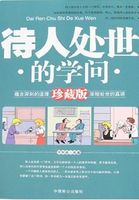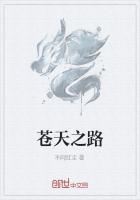Everybody was his friend. Not even the Whiteboys would injure him or the mails he carried. He could say with pride, that in the most disturbed times his cars had never been molested. Even during the Whiteboy insurrection, though hundreds of people were on the roads at night, the traffic went on without interference.
At the meeting of the British Association in 1857, Bianconi said:
"My conveyances, many of them carrying very important mails, have been travelling during all hours of the day and night, often in lonely and unfrequented places; and during the long period of forty-two years that my establishment has been in existence, the slightest injury has never been done by the people to my property, or that entrusted to my care; and this fact gives me greater pleasure than any pride I might feel in reflecting upon the other rewards of my life's labour."Of course Bianconi's cars were found of great use for carrying the mails. The post was, at the beginning of his enterprise, very badly served in Ireland, chiefly by foot and horse posts.
When the first car was run from Clonmel to Cahir, Bianconi offered to carry the mail for half the price then paid for "sending it alternately by a mule and a bad horse." The post was afterwards found to come regularly instead of irregularly to Cahir; and the practice of sending the mails by Bianconi's cars increased from year to year. Dispatch won its way to popularity in Ireland as elsewhere, and Bianconi lived to see all the cross-posts in Ireland arranged on his system.
The postage authorities frequently used the cars of Bianconi as a means of competing with the few existing mail-coaches. For instance, they asked him to compete for carrying the post between Limerick and Tralee, then carried by a mail-coach. Before tendering, Bianconi called on the contractor, to induce him to give in to the requirements of the Post Office, because he knew that the postal authorities only desired to make use of him to fight the coach proprietors. But having been informed that it was the intention of the Post Office to discontinue the mail-coach whether Bianconi took the contract or not, he at length sent in his tender, and obtained the contract.
He succeeded in performing the service, and delivered the mail much earlier than it had been done before. But the former contractor, finding that he had made a mistake, got up a movement in favour of re-establishing the mail-coach upon that line of road; and he eventually induced the postage authorities to take the mail contract out of the hands of Bianconi, and give it back to himself, as formerly. Bianconi, however, continued to keep his cars upon the road. He had before stated to the contractor, that if he once started his cars, he would not leave it, even though the contract were taken from him. Both coach and car therefore ran for years upon the road, each losing thousands of pounds. "But," said Bianconi, when asked about the matter by the Committee on Postage in 1838, "I kept my word: I must either lose character by breaking my word, or lose money. I prefer losing money to giving up the line of road."Bianconi had also other competitors to contend with, especially from coach and car proprietors. No sooner had he shown to others the way to fortune, than he had plenty of imitators. But they did not possess his rare genius for organisation, nor perhaps his still rarer principles. They had not his tact, his foresight, his knowledge, nor his perseverance. When Bianconi was asked by the Select Committee on Postage, "Do the opposition cars started against you induce you to reduce your fares?" his answer was, "No; I seldom do. Our fares are so close to the first cost, that if any man runs cheaper than I do, he must starve off, as few can serve the public lower and better than I do."[3]
Bianconi was once present at a meeting of car proprietors, called for the purpose of uniting to put down a new opposition coach.
Bianconi would not concur, but protested against it, saying, "If car proprietors had united against me when I started, I should have been crushed. But is not the country big enough for us all?" The coach proprietors, after many angry words, threatened to unite in running down Bianconi himself. "Very well," he said, "you may run me off the road--that is possible; but while there is this" (pulling a flower out of his coat) "you will not put me down." The threat merely ended in smoke, the courage and perseverance of Bianconi having long since become generally recognised.
We have spoken of the principles of Mr. Bianconi. They were most honourable. His establishment might be spoken of as a school of morality. In the first place, he practically taught and enforced the virtues of punctuality, truthfulness, sobriety, and honesty.
He also taught the public generally the value of time, to which, in fact, his own success was in a great measure due. While passing through Clonmel in 1840, Mr. and Mrs. S. C. Hall called upon Bianconi and went over his establishment, as well as over his house and farm, a short distance from the town. The travellers had a very pressing engagement, and could not stay to hear the story of how their entertainer had contrived to "make so much out of so little." "How much time have you?" he asked.
"Just five minutes." "The car," says Mr. Hall, "had conveyed us to the back entrance. Bianconi instantly rang the bell, and said to the servant, 'Tell the driver to bring the car round to the front,' adding, 'that will save one minute, and enable me to tell you all within the time.' This was, in truth the secret of his success, making the most of time."[4]
But the success of Bianconi was also due to the admirable principles on which his establishment was conducted. His drivers were noted as being among the most civil and obliging men in Ireland, besides being pleasant companions to boot. They were careful, punctual, truthful, and honest; but all this was the result of strict discipline on the part of their master.















